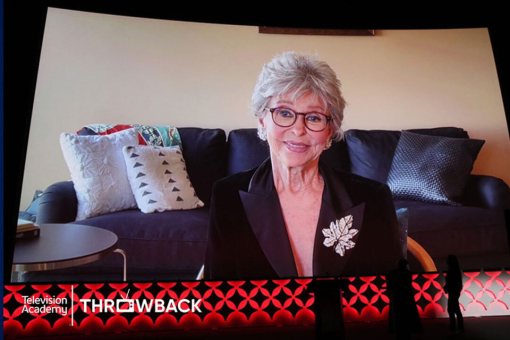From the assassination of President John F. Kennedy to the Watergate scandal, from the destruction of the Berlin Wall to the September 11th terrorist attacks, Dan Rather has covered every major world news event of the past five decades. He has interviewed dozens of international leaders, including every U.S. president since Dwight D. Eisenhower, and has traveled the globe from Europe to Asia, to Africa and the Middle East in pursuit of the most urgent stories of the day. He has covered natural disasters, political crises and wars in Vietnam, the Persian Gulf, Yugoslavia, Afghanistan, and Iraq. Simply put, for in-depth reporting delivered with humanity, heart, and the occasional dollop of folksy humor, Dan Rather has no equal.
"I can't remember a time when I didn't want to be a reporter," Rather says. "I've been so lucky to have a constant dream, and to have had the opportunity to follow it, but I had no idea that it could develop as it has."
How could he? After all, to paraphrase one of his trademark Lone Star State "Dan-isms," a schoolboy from the hardscrabble outskirts of Houston would sooner expect a talking stalk of broccoli to offer to mow his lawn than to imagine he would go on to one of the most esteemed careers in the history of broadcast journalism.
Born October 31, 1931 in sleepy Wharton, Texas, Rather is best known as the anchor of the CBS Evening News, a position he has held since 1981 when he succeeded the legendary Walter Cronkite. Rather has been chasing stories since childhood and even started a newspaper at his elementary school. In junior high, during a lengthy recuperation from rheumatic fever, he spent hours in bed listening to the radio, especially the World War II broadcasts of pioneering newsman Edward R. Murrow, which affirmed his budding devotion to journalism.
"At one point, I stayed in bed for over a year," says Rather. “And I'm prepared to say that I may have heard more Ed Murrow, William Shirer — who later wrote The Rise and Fall of the Third Reich — and Charles Collingwood broadcasts than anyone because I would lay there all day and night listening to their reports from overseas. I didn't realize it at the time, but it obviously made a deep impression on me.”
In high school, Rather played end on the varsity football team and worked on the campus newspaper. Although he yearned to become a reporter, he knew that like most of his peers he might wind up working in the nearby oil fields after graduation. But his mother was determined that somehow — despite their modest financial means — he would be the first in the family to receive a college education. Encouraged by her support, he hitchhiked north to Sam Houston State Teacher's College and talked his way into a tryout for the football team.
A self-described skinny kid who made up for his lack of size with tenacity and perseverance, Rather eventually had to leave the squad when he did not secure a scholarship. But his refusal to quit made an impression on journalism teacher Hugh Cunningham, who became an invaluable mentor. In addition to honing Rather's writing and reporting skills, Cunningham helped him find part-time jobs to pay for tuition, and "at one point even let me sleep on his living-room floor," recalls Rather.
"There's no way I could have or would have made it without his help," Rather says. "He was that treasure in every person's life who's lucky enough to have one: a talented teacher who really cares."
While still at Sam Houston, where he eventually became editor of the school newspaper, Rather worked at the Associated Press and United Press International. He also put in time at a small radio station where he wrote copy, worked as a disc jockey, and provided play-by-play commentary for football games, tracks meets, and other sporting events. The long hours of live broadcasting not only made Rather comfortable in front of a microphone, they also helped him develop his celebrated ad-libbing skills.
“When I walked to school, I would call imaginary games aloud to myself — and, yes, it's fair to say that I was always the person who made the winning shot or hit the homer or scored the touchdown when it was fourth and goal. So when I got to the radio station and they found out I could do play-by-play, I did four games a week during football season, as well as baseball, basketball, boxing, and even track meets. That's a lot of games, and I became pretty good at ad-libbing.”
Despite the breadth of his radio experience, Rather was still intent on a newspaper career. But after graduation and a stint in the Marines Corps at the tail end of the Korean War, the best job he could find was at a radio station owned by the Houston Chronicle. Fortunately, the job, which involved beat reporting on crime and local politics, turned out to be an ideal fit, and by the time he left for a position at a Houston television station, Rather had become the news director.
A few years later, after helping to elevate his TV station from third to first place in the ratings, Rather literally took CBS News by storm when his dramatic coverage of Hurricane Carla in the fall of 1961 led to a job with the network's news division — a relationship that continues to this day. After stints as chief of CBS's Southwest bureau in Dallas and the Southern bureau in New Orleans (during which he covered the Kennedy assassination), he went on to become chief of the Saigon and London bureaus, and was the network's White House correspondent during the Johnson and Nixon Administrations. In 1975, he became co-editor of the acclaimed newsmagazine 60 Minutes, and later spent several years as a correspondent for 48 Hours. Today, in addition to his many other responsibilities, he remains a regular correspondent for 60 Minutes II.
Rather's other career highlights include moving reports from Beijing during the 1989 pro-democracy demonstrations in Tiananmen Square, dispatches from South Africa during that country's first democratic elections in 1994, multiple visits to Bosnia in 1995, and, in August 1990 and February 2003, exclusive one-on-one interviews with former Iraqi president Saddam Hussein. Along the way, Rather has earned virtually every award in his field, from Emmys to a Peabody, and he has written several books, including The Palace Guard (1974), The Camera Never Blinks: Adventures of a TV Journalist (1977), The Camera Never Blinks Twice: The Further Adventures of a Television Journalist (1991), I Remember (1992), Deadlines and Datelines (1999), Profiles in Journalism (2000) and The American Dream: Stories from the Heart of Our Nation (2002).
Rather, an avid fisherman who lives in New York City with his wife Jean, a painter, says he has never lost his boyhood drive to sniff out big stories. And, not surprisingly, he still insists upon getting out from behind the anchor desk to witness the news first-hand whenever possible. “As a reporter, if you're going to be credible as an honest broker of information about what's happening around the world, you have to walk the ground," he says.
“It's unrealistic to believe that you can operate in a windowless room on the west side of Manhattan, and never go anywhere, and convince yourself that the audience is going to believe you know what you're talking about. To report a war you have to see the war, and there's no substitute for it. It's true that I wear a number of hats, and there's a constant balancing of priorities, but I always want to grab a pencil and a notebook and get out of the office.”
Reflecting on his more than 50 years in the news business, Rather, with characteristic humility, returns to his youth in rural Texas, when the larger world seemed distant and unattainable, but always worth striving for:
“When I was in bed with rheumatic fever, I dreamed of faraway places with strange-sounding names where important things were happening, and thought, ‘What a life that could be.’ Some of us who are lucky, and have had some of God's grace, get to live our dreams. I can be dumb as a brick about a lot of things, but I'm smart enough to know how lucky and blessed I've been.”
This tribute originally appeared in the Television Academy Hall of Fame program celebrating Dan Rather's induction in 2004.












